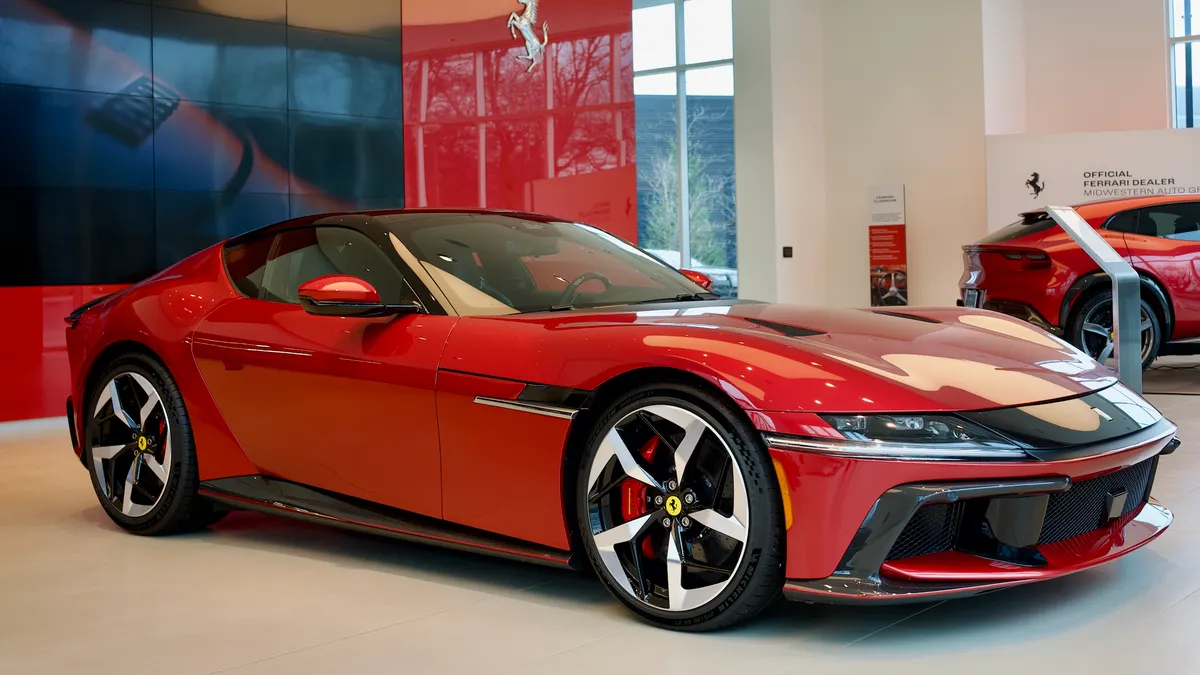Europe needs a proper collective and coherent industrial strategy to deal with unfairly subsidized automotive products imported from China.
That’s the view of Renault’s CEO, Luca de Meo, speaking exclusively this week to WardsAuto at the Paris Motor Show 2024.
The French automaker’s boss also strongly defends the European Union’s “fair” decision to impose punitive tariffs on imports of battery-electric vehicles from Chinese automakers subsidized by the communist state.
He points to the sliding scale of tariffs that reflect the cooperation, or otherwise, of individual Chinese brands with investigators of Europe’s trade body, the European Commission, ranging from 7.8% for those helping in the investigation to 35.3%, on top of the standard 10% third-country tariff, for those who did not.
“This is a legal situation,” de Meo tells WardsAuto from the showroom floor. “You have rules of the game that are signed by everyone in the WTO (World Trade Organization) and then you have investigators from the watchdog of the European Union that assess some distortions of the rules.”
He says Europe’s measured approach is worlds away from the sledgehammer tariffs against Chinese-made BEVs currently applied by the U.S. and Canada.
“It’s not like in the U.S. where everything that looks Chinese goes to 100% (tariffs). They took a very focused approach and measured each one of the companies, and it’s fair and more professional,” adds de Meo.
“It is an application of the methodology that has been agreed by parties in the WTO. It’s like you have a Supreme Court judgement for a crime as to whether it’s right or wrong – it’s the law.”
However, he recognizes that tariffs alone cannot be depended upon to help Europe’s legacy automakers compete on a level playing field with China or any other third country using unfair industrial tactics to penetrate the economic bloc’s lucrative automotive markets.
He explains: “The real question for me is whether we are able to reorganize ourselves, potentially differently, from the Chinese because we live in a different capitalistic system to be able to long-term compete with them in, say, five or 10 years. That is the real question, not the tariffs.
His solution is: “We need to develop a Europe-wide strategy to make this a possibility for the future.”
During the cacophony of new model launches from Renault and its sub-brands, de Meo made a special point of addressing the two new launches of micro-mobility solutions by the automaker’s specialist Mobilize business unit.
Here two quadricycles were presented with a keen focus on the urban user in the shape of the Duo and its utility micro-light-commercial vehicle, the Bento.
Responding to the daily challenge of moving people and goods in and around cities, Mobilize is reaffirming its commitment to simple, safe and sustainable mobility solutions. Designed for urban use, Duo is an electric quadricycle, and Bento, its utility version. Both vehicles can also provide mobility solutions in regions with limited public transport.
Duo and Bento are aimed at both retail and business customers. Duo is a 2-seater vehicle and can be driven with or without a driving license, depending on the version and local regulations.
Bento is a micro-van requiring a driving license. Instead of a passenger seat, it has a 22.9 cu.-ft. (649L) cargo box for carrying small items of equipment and other goods.
Both Duo and Bento are compact at 8 ft. (2.43 m) and 8.3 ft. (2.54 m) long, respectively, and easy to maneuver in city traffic.
During the vehicles’ presentation, de Meo expressed his excitement at seeing Mobilize bringing both products and services to markets.
He says: “Mobilize is one of my favorite parts of the group and it’s great for me to see it is getting up to speed here. It is not every day that you set up a completely new brand from scratch, which is something Renault didn’t do for the past 120 years.
“But we found we needed to turn the tables because everything is changing in the automotive business with the shift to BEVs and the shift from ownership to users. So we have brought together assets that were already working in the group to create Mobilize.
“The objective is to find the solutions to help people make those shifts. Leasing solutions to make BEVs more affordable, energy services to make BEVs more easy to use and, actually, better even than ICE – that’s the target.
“Today, this is just getting real and we are only at the beginning. I think this is a very good thing for the market and good news for the Renault group because Mobilize helps us pivot towards new business and is more profitable than our traditional business model.
“In the last four years we have been able to strike deals with the most innovative players everywhere, like Qualcomm, Geely and Suez. This spiderweb lets us go and capture the very best innovation everywhere it is and inject it into our cars and our services.”


















